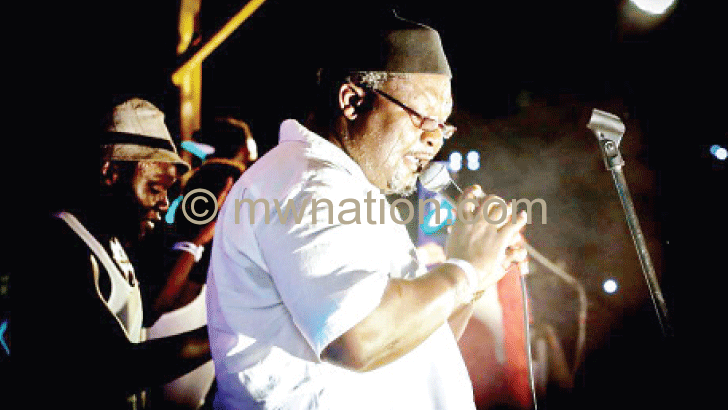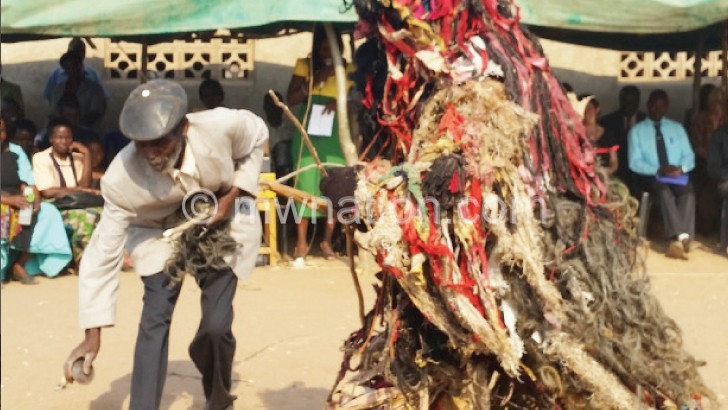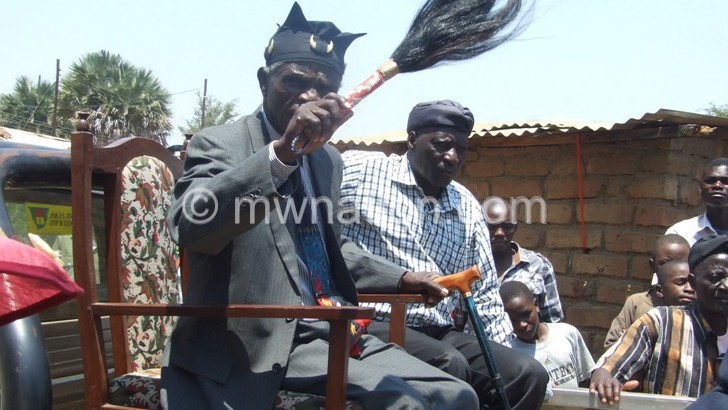Are powers of the uncles fading?
 Change is one element that has exceptionally rocked the world. If we are to press the refresher button and reflect back to the way people lived some decades ago, it is obvious that a lot has changed.
Change is one element that has exceptionally rocked the world. If we are to press the refresher button and reflect back to the way people lived some decades ago, it is obvious that a lot has changed.
And culture is one of the sections that have been strongly affected. Most of the issues that were valued as very important in the past do not hold the same powers today.
Culture is changing and adopting to lifestyles that would otherwise have been observed elsewhere.
The value of an uncle in a family set-up has not been spared. An uncle in a Malawian set-up holds all the powers for a family particularly on decision making on the future of the children. They play crucial roles in marriage processes and other family issues. The children’s parents consult from the uncles before making a decision on their children.
However, lately, the trend seems to be fading as testified by Francisco Kaombe. Kaombe who comes from Nkhata Bay in the northern part of Malawi says he is an uncle. He says he is Chewa by tribe and they believe in that it is an uncle who has a final say on anything occurring at the family of the uncle’s sister.
“Parents are there for the children, but they cannot go ahead marrying off a child without involving an uncle. Even when there is funeral, be it the death of a child or any other member of the family, it is the uncles that make decisions on everything,” says Kaombe.
However, Kaombe says he has observed a change in the way uncles are being valued nowadays. He reveals that in the past, he used to be invited to help in making decisions or intermediate family issues at his village, but not today.
“As the family owner according to our culture, an uncle is encouraged to stay close to the family. We live with our ears on alert knowing that if anything happens, we would be invited. But not today, we usually get most issues when we visit the homes. If you are invited then it is a serious issue,” he says, adding that the observable power of uncles which is still valued is when marrying off children.
On why they are losing their powers, Kaombe blames westernisation.
“Most people are like striving to live an English life whereby the parents have all the powers on their children. There is a lot of change in our society which I can call generation mutation. People are spending time thinking on any aspect that surrounds them while valuing the role of all elements that surrounds their set-up.
“Another factor is that most uncles just own the families, but they don’t contribute much financially to the family, so issues like these are what are forcing people to ignore some elements in their cultures,” says Kaombe who believes this has been promoted by social media and the movies.
Traditional Authority (T/A) Kapeni of Blantyre who is Yao also agrees to this.
“We call uncles Eni Mbumba meaning the owner of the family. Per our traditions which are also relevant to what is believed in other tribes in Malawi, no one except the uncle has the power to make a final decision on a family. The person who comes to marry our child is nobody in terms of making decisions for the family, but the uncle,”
“However, this is changing. It is observable that most fathers are having total control of their children and make decisions even without consulting from anyone,” he says.
T/A Kapeni knows the reasons. He points out education, independence and migration as contributing factors.
“We have graduated from the time when we used to live at one place in the village. When a couple gets married, they are thinking about independence and so they move out of the home and settle somewhere away. This transforms all the powers of the uncle to the father as he is responsible for the family. The only time they think of the uncle is when it is time for mediating family issues,” he says.
Village Head Makolosa is of the same view. He says Malawians have opted to live an English life whereby a father, mother and children live as family.
“Malawi is known to have extended families and most people live in dependence. This is not common today. The homes of origin are being taken care of by grandparents, all children leave the home when married and that is why the powers of uncles are ceasing,” says Makolosa who is Lhomwe.





